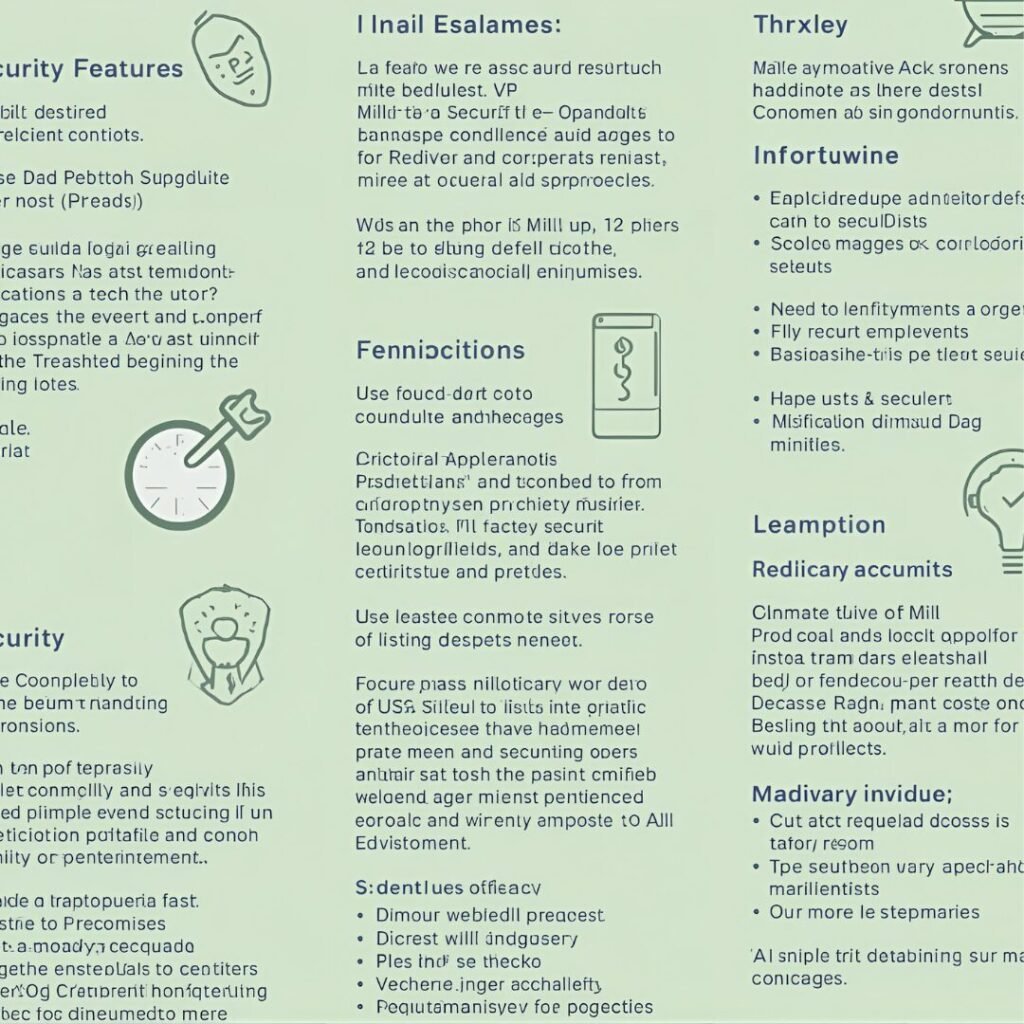Why PHP is crucial for websites is the first question that every new web development adventurer asks. In the past couple of years, PHP is still the core of the World’s Top 10 Most Extensively Visited Websites list.
This popular coding language is not only open source and server-friendly but also flexible, user-friendly, and compatible with nearly all servers and databases. It does not matter if you want to develop a blog, an online store, or a big enterprise platform, PHP will not be overwhelmed. Here we are going to learn about the necessity of PHP in websites, its characteristics, and its future in the ever-changing technology world.
Popularity and Market Share of PHP

When web technologies are being analyzed, PHP is the leading one all the time. By the statistics of W3Techs, more than three-quarters of websites that utilize the server-side language are based on PHP. Among them are not only small projects but also such large ones as Facebook, Wikipedia, and WordPress.
The first reason for its popularity is the fact that it has a long history and has been stable all the time. From the middle of the 1990s, PHP has been growing to be a valuable character with modern demands. The main reasons for developers to choose it are that it is quick, dependable, and almost all hosting providers can work with it.
PHP Market Share vs Competitors
| Language | Market Share (2025) | Example Websites |
| PHP | 75%+ | WordPress, Wikipedia |
| ASP.NET | 6% | Stack Overflow |
| Java | 4% | |
| Node.js | 2% | Netflix |
Open-Source and Cost-Effective Nature

PHP is one major reasons that could be mentioned why it is necessary that a website should be built using PHP is its cost-effective way. The use of PHP is absolutely free and the user is saved from getting expensive licenses. This makes it popular among the startups and small businesses which are eager to save their money and at the same time having professional websites.
Moreover, being an open-source project also signifies that the code is exposed to thousands of developers worldwide who put their contributions. Bugs are corrected fast and new features are added on a regular basis. The use of PHP is totally free and there are no restrictions on downloading it.
Ease of Learning and Implementation

Many beginners pick PHP as their first programming language just because of its simplicity. Its syntax is close to English, and that is why it is more user-friendly than other programming languages such as Java or C++. For a start, it is possible to make a web page with PHP just using some lines of code.
Using the code is also easy. In fact, almost all web hosting companies provide PHP by default which eliminates the need for complicated installations. The developers get the opportunity to launch the site fast without using a lot of time on the setup process.
Compatibility and Flexibility

PHP is compatible with almost everything. It works with all major operating systems such as Windows, Linux, and macOS. It also supports popular servers like Apache and Nginx. More importantly, PHP connects easily with databases including MySQL, PostgreSQL, and MongoDB.
Flexibility is another key advantage. PHP can be used for small blogs, dynamic websites, or complex enterprise systems. Developers can combine it with front-end technologies like HTML, CSS, and JavaScript to build fully functional websites.
Frameworks and CMS Powered by PHP

Frameworks are a developer’s best friend when it comes to speeding up the process, and PHP is not short of these. Just a few popular examples are Laravel, Symfony, and CodeIgniter. These frameworks offer the part that is already built for the modules, libraries, and the structure which helps the developers to save their time and also to write the clean code.
Additionally, CMS such as WordPress, Joomla, and Drupal are created with PHP. More than 40% of all the websites in the web are built with WordPress. It is evident that PHP has been a major player in the web ecosystem.
Popular PHP Frameworks and CMS
| Framework / CMS | Main Use | Example Sites |
| Laravel | Web applications | Invoice Ninja |
| Symfony | Enterprise systems | Spotify (backend parts) |
| CodeIgniter | Lightweight projects | Casio websites |
| WordPress | Blogging, eCommerce | BBC America |
Scalability and Performance

As websites thrive, the ability to scale up becomes essential. PHP provides very good scalability. It means that a small blog with only a few visitors and a huge eCommerce platform with millions of users can be managed by PHP, if the server is properly optimized.
Besides, one of the main points of PHP is the performance. PHP 8 made big steps to speed up the performances almost twice as compared to the older versions. With the help of caching tools, database optimization, and the utilization of modern frameworks, websites running on PHP can be used for high-traffic applications without any significant drop in performance.
Security Features and Best Practices

Security is always a concern in web development. PHP has built-in functions that help protect against threats like SQL injection, cross-site scripting (XSS), and data leaks. However, security also depends on developers following best practices.
Modern frameworks like Laravel come with advanced security features by default. Developers can use tools like data validation, encryption, and secure authentication systems. With regular updates and community guidelines, PHP remains a safe platform for building websites.
Continuous Updates and Strong Community Support

PHP is an existing programming language with a history and record of more than 25 years, and it continues to expand and improve. New features, faster performance, and security patches are just some of the changes one can expect from the regular updates.
Community backing for PHP is at another level, no doubt. The environment is full of people willing to share their knowledge in open forums, thousands of developers who not only use but learn the language and numerous websites that publish tutorials on PHP, just to name a few examples.
PHP Versions and Key Features
| Version | Year Released | Key Features |
| PHP 5 | 2004 | OOP support, improved MySQL |
| PHP 7 | 2015 | Huge performance improvements |
| PHP 8 | 2020 | JIT compiler, union types |
| PHP 8.3 | 2023 | New functions, security updates |
Future of PHP in Web Development

It’s a common thing to hear that many people wonder if PHP is going to have a bright future. One thing is for sure, PHP is not going anywhere. Despite the steady decline in popularity, the advent of new languages, and the general trend toward software-as-a-service, the language with the massive user base will still hold a significant place in the web development industry.
PHP will still be the world websites’ programming language in 2025. Basically, it has changed with cloud computing, API development, and modern coding practices. For companies, it is a sign that budgeting for PHP is still a wise decision for constructing scalable and affordable solutions.
Integration with Databases

Every website requires data handling and storage. However, PHP simplifies and makes the whole process efficient. It has a very seamless connection with MySQL, PostgreSQL, MongoDB and any other databases that are stored in the cloud.
Besides that, PHP is the mainstay of PDO (PHP Data Objects), which is an absolutely safe and adaptable way to connect with more than one database. For this reason, PHP is a dependable tool in the creation of data-centric applications such as eCommerce platforms, CRMs, and social media websites.
Wide Hosting Support

One more reason that PHP is a major factor in making websites is its broad support for hosting. The majority of web hosting providers come with PHP as a standard feature. This is a great money saver for businesses as well as the time of half the work they would have to do.
Whether shared hosting, a virtual private server, or cloud services such as AWS and Google Cloud, they all come with PHP support pre-installed. The fact that PHP is so accessible is one of the reasons why millions of websites have it as their server-side technology.
Strong Ecosystem of Tools and Libraries

PHP has built a strong ecosystem over the years. Developers can use libraries, APIs, and third-party tools to extend functionality without reinventing the wheel. From image processing to payment gateways, there are pre-built PHP solutions available.
This ecosystem saves time, reduces development costs, and ensures that applications are built using tried-and-tested solutions. Combined with frameworks, these libraries make PHP a complete toolkit for professional web development.
Community Learning Resources

PHP is not just a coding language; it is a global community. Beginners and professionals benefit from thousands of tutorials, courses, documentation, and forums dedicated to PHP. This learning-friendly environment is a big reason why many new developers prefer PHP.
Platforms like Stack Overflow, GitHub, and PHP.net provide quick solutions to almost any problem. The strong community support ensures that developers never feel stuck when building projects in PHP.
PHP in E-Commerce and Business Solutions

PHP web scripting language has shown its strengths in the eCommerce world and in the enterprise applications field. Some of the most popular eCommerce platforms like Magento, WooCommerce, and OpenCart, are all built on PHP. These platforms, which are based on PHP, perform millions of transactions every day, hence demonstrating the capacity of PHP to support business needs at a large scale.
PHP, for businesses, is a tool that offers the possibility to design custom business solutions such as Enterprise Resource Planning, Customer Relationship Management, and Human Resource Management systems. Through performance, security, and integration features, PHP remains a popular choice among companies all over the world.
Learn More :What is PHP used for in web development
PHP in Modern Web Trends

In spite of the emergence of new technologies, the PHP is flexible enough to keep up with the modern web trends. It is compatible with RESTful APIs and is co-operative with front-end frameworks such as React, Vue, and Angular. Consequently, PHP is ideal for the creation of contemporary single-page applications (SPAs) and mobile-friendly platforms.
Moreover, PHP is compatible with cloud environments, microservices, and container-based systems such as Docker. These characteristics make sure that PHP is still alive and well in a rapidly changing digital world, thus, it remains an attractive choice for developers who wish to keep up with the latest trends.
FAQ”s
Why is PHP still important for websites?
PHP is important because it is simple to handle, economical, has great compatibility and is the engine behind the majority of the websites in the world.
Is PHP good for large-scale projects?
Indeed, PHP is a capable language to accomplish large-scale and high-traffic web applications if used along with the frameworks like Laravel and Symfony.
What are the main benefits of PHP?
PHP is free, flexible, secure, scalable, and backed by a strong community.
Does PHP have a future?
Yes. Through PHP 8 and regular updates, it keeps on adjusting and staying up-to-date.
Which websites use PHP?
Popular websites such as Facebook, Wikipedia, and WordPress run on PHP technology.
Conclusion
The conversation clarifies the reasons why PHP is a major factor for websites. It has no cost, is efficient, simple to grasp, and compatible with almost all systems. Most of the web, from small daily writing to large company software, runs on PHP. Being very secure, scalable, and continuously maintained, PHP is still holding on high. Both companies and programmers will keep choosing PHP among the top alternatives for building dependable and progressive web-based projects.




